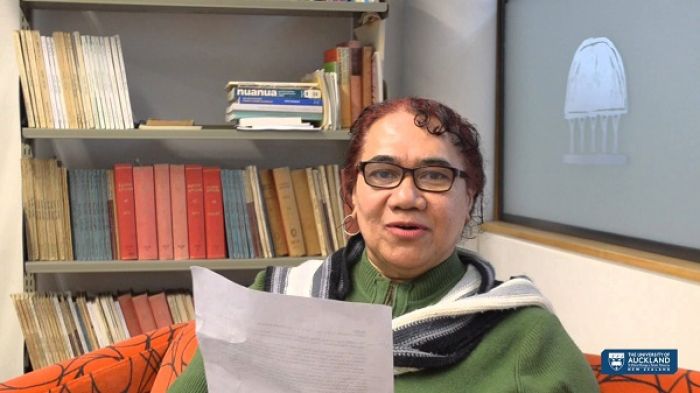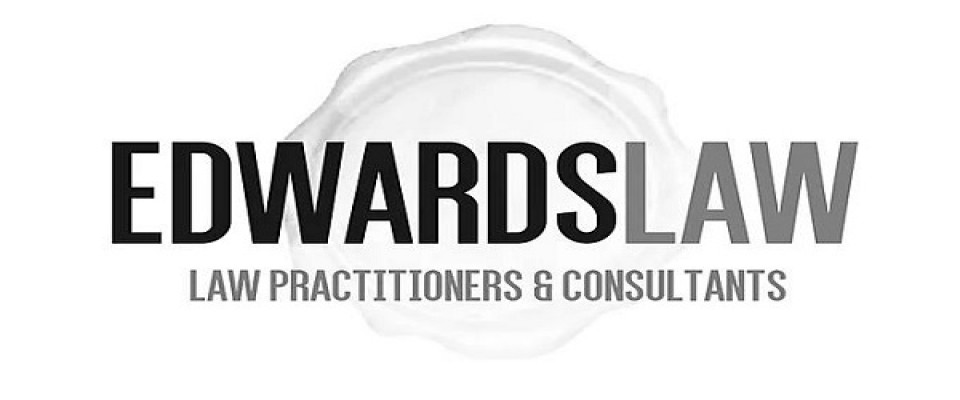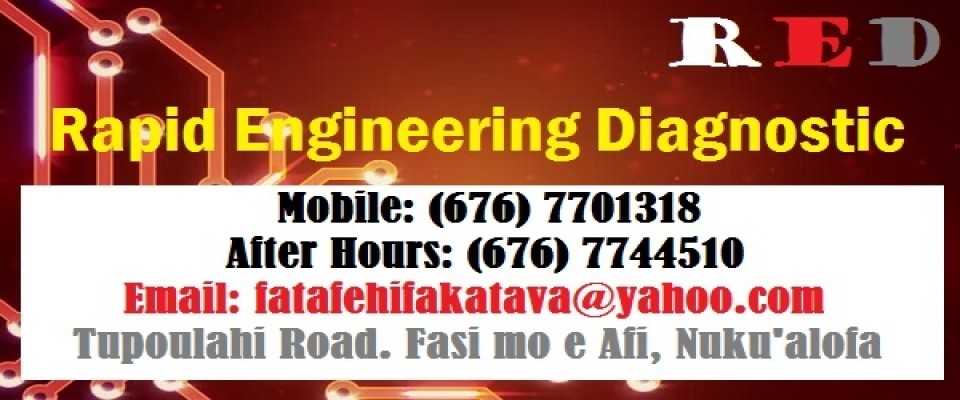Tongans walking in the democratic dark Featured
 Dr Melenaite Taumoefolau is a senior lecturer in Pacific Studies at the University of Auckland
Dr Melenaite Taumoefolau is a senior lecturer in Pacific Studies at the University of Auckland
8 December, 2017. The University of Auckland's Dr Melenaite Taumoefolau argues Tongan democracy is effectively meaningless if the people have no true translation for it in their language
When the New Zealand media proclaimed the landslide victory of the democratic party in the Tonga election on November 16, I thought what landslide, what victory, and indeed what “democratic” party? For out of the 39,000 voters, only 16,000 voted for the democratic party. And Tongan people don’t understand democracy, so incongruent it is with the Tongan world-view, culture, and ways of doing things.
But what is worldview? It is how people understand and interpret the world and it is expressed in language as concepts – and there is no concept of democracy in the vocabulary of Tongan. Tongans use their language to talk about things Tongan, their culture, their environment and what is important to them as a people. So Tongans are familiar with concepts represented in the Tongan language by words such as ‘eiki (a person with chiefly blood), mehekitanga (father’s sister) or ta‘okete (older sibling of the same gender).
Since the concept of democracy, and the word, is an introduced one, Tongans use the English loanword temokalati for it, but temokalati is not generally understood. For a word to be a Tongan, it must have a meaning known by the public. The loanword temokalati is not yet widely known by the Tongan public, so it is arguably not yet a Tongan word. Tongans who speak academic English and have been educated to tertiary level know the word, but many, many older Tongans, both in Tonga and in the diaspora, can only guess at the meaning.
Principles of democracy, such as transparency and accountability, are also introduced concepts so Tongans have had to coin words for them. I have heard both transparency and accountability translated as feongoongoi (when two or more people listen to each other), but that word is used in the context of friends, family, and small groups of people who agree with one another because they are able to talk about things before doing them. It does not apply to large scale groups such as a whole nation and its king, or an electorate and its representative.
Transparency has also been translated as ‘not to be secretive’ – ‘oua ‘e fakapulipuli – but that refers to a person being furtive, stealthy, doing things on the sly, and thereby acting suspiciously. Transparency, as an attribute of political leadership, is about people having a right to know what the leader or party are doing because of the money they pay via their taxes. So transparency carries with it the idea that it is the just thing to do in the context of democracy and, in a similar way, so does the word accountability. These terms assume a system which has written laws that govern political relationships where one party must report to another because that is the lawful thing to do. These connotations are absent in the Tongan translations.
The fact is, Tongans are not democratic by nature and they do not know what it means to be democratic, so we need to ask ourselves this: we may have a democratic instrument of election, and even a democratic party, but do the people who carry out the voting know what democracy is?
So where did these rights come from? From our universal human society, which is not necessarily governed by the principles and assumptions of our Pacific cultures. Human rights of equality are contrary to the cultural rights of Tongan people, who have a king who is above all others, and chiefs who are above all commoners. There is a regal level of language used of the king, a chiefly level, an oratorical level, and a self-derogatory language of humility – all these speak of layers of society that do not have equal rights. In the Tongan cultural system, the king and chiefs and others of a higher status receive special treatment and special respect.
Democracy hinges on the recognition of equal rights – equal rights of chiefs and commoners; of the king and those who serve him; of the church minister and the members of the congregation; of men and women, of men and boys, of lawyers, of wives and husbands, mothers and fathers, brothers and sisters, uncles and nephews, aunts and nieces. In the Tongan worldview all these relationships are unequal – in roles, in power and in rights. As a political system, democracy in Tonga is new compared to the first known monarchy in the late first millennium. The overriding principles and values of the monarchical system are respect, solidarity, resilience and sacrifice, and the question is whether they can co-exist with the principles of democracy.
So what then are they voting for? I can only speculate they are voting for their closest family. That is much more in line with the Tongan worldview. Constituencies have extended families living together. It is easy for them to choose their favourite son or daughter. It does not matter if he or she is 'democratic' or not, or what the issues are. Which reminds me – two female candidates with PhDs would have given the guys a run for their money had they been elected. I think if the educationalist Dr ‘Ana Koloto had gone to Ha‘apai, to her mother’s people, they would have voted her in because the people of Ha‘apai appreciate a good education.
So democratically speaking, we Tongans are walking in the dark. Landslide or not landslide, it is time the democratic party started explaining what democracy is to the people. We cannot assume anything too drastic from this so-called landslide victory.
Dr Taumoefolau was previously Principal of Tonga College and a senior education officer in the Tongan Ministry of Education. She was the first Pasifika woman to graduate with a PhD (her field was linguistics) at the University of Auckland.
-newsroom
7 comments
-

Ko e 'uhinga 'a Melenaite ki he hono liliu 'o e lea "temokalati" koe palopalema ia he koe fefine ko hono mala'e 'a e lea pe koe linguistic. 'Oki 'ikai tuhu'i mai heni 'e Melenaite ia 'oku kau ki he temokalati pe 'ikai pe ko hono 'uhinga mo hono ngaahi palopalema. 'Oku nofo pe ia 'i he kavinga ko hono liliu mo e context pe koe 'uhinga hono liliu mo faka'uhinga'i 'e he Tonga he 'oku kehekehe 'a e faka'uhinga 'a e taha kotoa.
-

Ko e issue ia ko e 'ikai ke mahino'i 'e he kakai e 'uhinga 'o e "temokalati". Pea oku tonu ketau tuhu ki he taimi nae consult ai 'a e kakai pe na'e loloa fe'unga nai? He ko e vaha'a taimi ia na'e tonu ke fa'oaki ai e mahino mo e naunau 'o e temokalati ki he ngaahi fakakaukau 'a e kakai kau ai e fo'i kavei ena 'e taha na'e lau 'e Fahina. Ka 'oku meimei mavahe 'eku lau mo eneasi mei he isiu ko e loto 'ita he toki 'asi mai mo e fakamatala mahu'inga kuo hoko e palopalema. Kapau na'e 'ofa fonua 'e tu'u mai he taimi hono akonekina o e temokalati ki he kakai.
-

'Oku ou fakamalo lahi atu kia Fahina hono to e fakafoki mai 'a e talanga he funga 'o e maama mo e mahino mei he sino pe pesona pe soosi ki he kaveinga pe 'isiu pe poini na'e fokotu'u mai 'e Dr Melenaite Taumoefolau 'a ia ko e ke i ta'emahino ki he kakai Tonga 'a e lea 'Ingilisi ko e "democracy" kuo liliu faka-Tonga ko e "temokalati,"
'Oku 'ikai nai ko 'etau talanoa 'uhinga 'eni 'a ia 'oku toki muimui mai ki ai 'a e talanoa 'aonga he tefito'i mo'oni ta'ele'eia 'oku pau ma'u pe ke tau tomu'a ma'u 'a e 'ilo pea tau toki ngaue'aki 'a e 'ilo ko ia ke 'aonga ki he'etau mo'ui mo e nofo ('a ia 'oku tefito ai 'a e ngaue ' e kau saienisi mo e kau 'akaatemika). 'Oku fakatupu hono fakamu'omu'a 'a e 'aonga mo e ngaue he 'ilo mo e fakakaukau 'a e maumau mo e fihitu'u mo e puputu'u lahi 'o hange tofu ko hono fakamu'omu'a 'a e saliote he hoosi.
Neongo hono ma'ave'ave hono lea'aki pe ngaue'aki 'a e lea ko e "temokalati" 'i Tonga ni he ngaahi ta'u lahi 'o a'u mai ki he 'aho ni ka 'oku kehekehe 'a e tu'unga pe levolo 'o e mahino 'a e kakai Tonga mo to e tokolahi pe 'a e kakai Tonga 'oku si'isi'i mo hala ha'anau 'ilo lahi ki ai,
'Oku hoko mo e ngaahi me'a tatau tofu fekau'aki mo e ngaahi lea lahi kehe 'o hange ko e lea ko e kemikale, 'atomi, 'ilekitulomika, 'etisi, niumonia 'oku liliu faka-Tonga mei he ngaahi lea 'Ingilisi ko e chemical, atom, electronic, aids mo e pneumonia.
'Oku to e hoko mo e me'a tatau he liliu faka-Tonga 'a e lea 'ingilisi ko e air ki he lea faka-Tonga ko e 'ea 'o ne teke'i 'a e lea Tonga mohu mo loloto ko e matangi 'o hange ko hono ngaue'aki he fakamatala 'ea ka e talanoa ia ki he fakamatala matangi he 'Ofisi Vakai Matangi.
'Oku mahu'inga ke tokanga'i ko e taukave 'a Dr Taumoefolau ko e lingikuisi he polopalema fakalingikusitika 'a e polopalema tefito 'o e liliulea mei he lea 'e taha ki he lea 'e taha mo hono liliu 'a e lea 'Ingilisi ko "democracy" ki he lea Tonga ko e "temokalati" 'a ia 'oku to e faliunga 'ene polopalema hono to e liliu 'a e ngaahi fa'unga 'e 4 ko e transparency, accountability, equality mo e justice ki he lea Tonga ko e 'ata-ki-tu'a, tali-ui, vahevahe-tatau mo e fakamaau-totonu ka e si'aki 'etau ngaahi lea mahino mo loloto 'o hange ko e "feongoongoi" ki he "transparency" mo e "fetokoni'aki" (fevahevahe'aki, fe'ofa'aki, fetauhi'aki mo e ha fua) ki he "equality" pe "equity" mo e ha fua.
'Oku kau ai 'a e polopalema vivili na'e fokotu'u mai 'e Fahina hono malanga'i 'e he PTOA 'a e ngaahi fa'unga 'e 4 ko 'eni na'a nau to e tamalaki tatu'olahi he'enau hoko 'o pule'anga 'o ne to e langa 'a e fakakaukau pe ko e ha ko a (mo mahino kiate kinautolu) 'a e me'a ko e "temokalati."
Na'e hoko heni 'a e pule kovi mo e taki kovi 'a e PM mo hono pule'anga 'o tupu ai hono veteki 'o e Falealea ka e hili ko ia 'oku ke i fili pe tokolahi 'o kau ai mo e kau ako lelei mo e kau lotu tokolahi na'a nau kanititeiti mo fakafofonga ma'ae PTOA? 'Oku 'ikai nai ko e konga 'eni 'o e po'ulilolo 'oku tofanga he fonua ko e 'ilo pe mo'oni ka e ke i fematematei mo fakafeavleavleloi pe hono teke mo poupou 'a e kaka mo e loi? -

Kuo mahino pe ki he kakai ia 'a e Temokalati ka koe me'a koee oku fai'ehe kau Taki koee oku ui koe kai Taki fakatemokalati 'o Tonga oku ikai ke nau fai kinautolu ki he me'a oku nau malanga'i mo tala ki he kakai..
Koia oku ha ta'e mahino ai ki tu'a Pule'anga e ta'e fakatemokalati 'a e founga ngaue 'a e kau Taki kae kei tui pe 'a e kau poupou koe lelei taha pe ia .. -

'Oku ha mahino mai 'i he tohi a' e tokotaha ni, 'oku lahi 'ene mama'o mei Tonga. 'Oku mahino lelei pe ki he kakai Tonga 'a e temokalati faka-Tonga, koe 'uhinga ia ne nau fili 'ai e kakai tatau pe, ka 'oku 'ikai koe kau toketaa (Drs) honau ngaahi vahenga (e.g. Dr pelesikoti, Dr Viliami, Dr Fusimalohi etc). 'Oku malie 'a e faka-'uhinga ka 'oku kei nofo pe 'i hakaumotu.
-

'E faifai pea fakapapau'i ko e 'ulungaanga 'o e Tonga ke tali pe ke toki hoko ha palopalema kae toki fakaanga'i mo tukuhifo osi koiaa ne iai pe taimi ke fakalelei'i ai. Ha leva hono 'aonga e toki longoa'a mai he taimi ni e!
-

Koeha koaa e me'a na'e 'ikai teke ha'u ai 'o tokoni he taimi o e civic education ke fakamaama ki he kakau e uhinga o e Temokalati. Na'e osi fai e consultancy kiai, ka ke toki hu mai he taimi ni oku lahi e ta'emaau.



